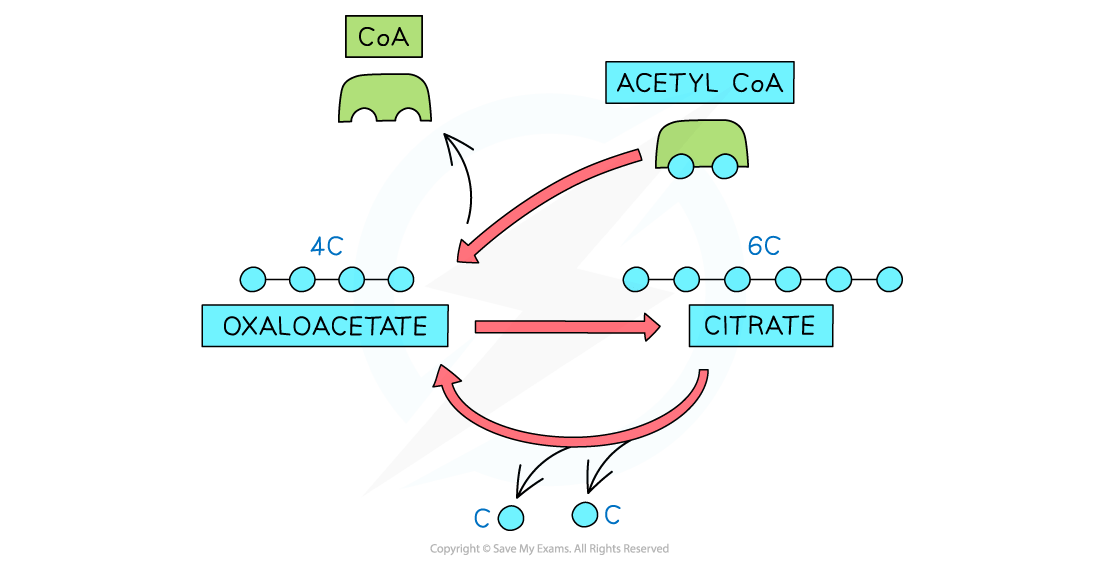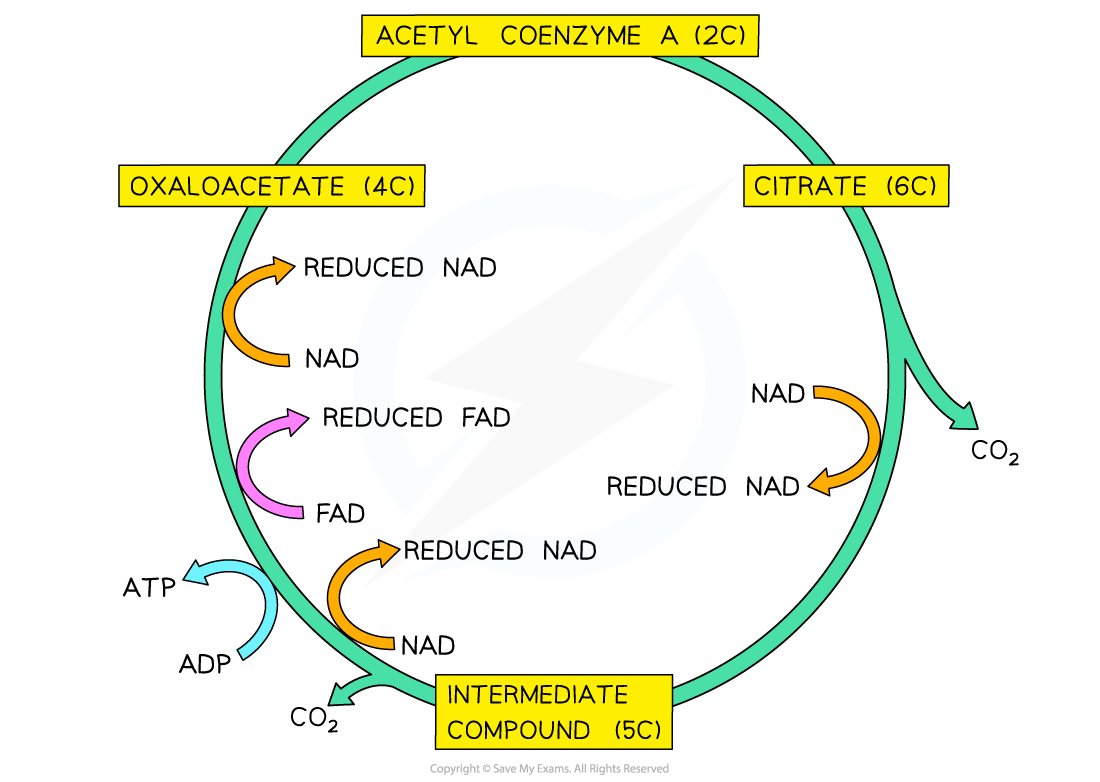Aerobic Respiration: The Krebs Cycle (Cambridge (CIE) A Level Biology): Revision Note
Exam code: 9700
Aerobic respiration: outline of the Krebs cycle
The Krebs cycle (sometimes called the citric acid cycle) consists of a series of enzyme-controlled reactions
Acetyl CoA (2C) enters the circular pathway via the link reaction
4 carbon (4C) oxaloacetate accepts the 2C acetyl fragment from acetyl CoA to form citrate (6C)
Citrate is then converted back to oxaloacetate through a series of small reactions

Aerobic respiration: the Krebs cycle
Steps in the Krebs cycle
Oxaloacetate is regenerated in the Krebs cycle through a series of reactions
Decarboxylation of citrate
Releasing 2 CO2 as waste gas
Dehydrogenation of citrate
Releasing H atoms that reduce coenzymes NAD and FAD
8H + 3NAD + FAD → 3NADH + 3H+ + FADH2
Substrate-level phosphorylation
A phosphate group is transferred from one of the intermediates to ADP, forming 1 ATP

Examiner Tips and Tricks
It is a good idea to learn the Krebs cycle in detail. You may be asked to name the important molecules in the Krebs cycle like oxaloacetate. It is also worth noting how the number of carbon atoms in the substrate molecule changes as the cycle progresses.

Unlock more, it's free!
Was this revision note helpful?
